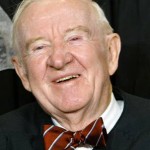Forget About That Local Democracy Bit
One of the insights of Public Choice theory (a way of viewing political actors as self interested agents) is that intensely interested parties may often be able to exercise disproportionate influence over public policy to benefit their own interests at the expense of the common good. This proposal to vest greater control over local school districts and school boards with the state Superintendent of Public Instruction strikes me as a prime example.
I have no idea whether placing MPS under the responsibility of the Mayor would have helped what every one agrees are completely unacceptable outcomes. The idea was to place responsibility for the schools with a public official to whom more people pay attention and whose election and re-election is more salient, i.e., more people pay attention. School board races attract few voters and tend to be denominated by those who are self interested in the status quo or in particular proposals for reform. This results in a weaker demand for acountability on the part of the general public. If the mayor had to run for reelection based, in part, on the performance of the schools, it is more likely that something would get done.
One of the arguments against the takeover, however, is that it would diminish the voters’ direct control over the schools.

